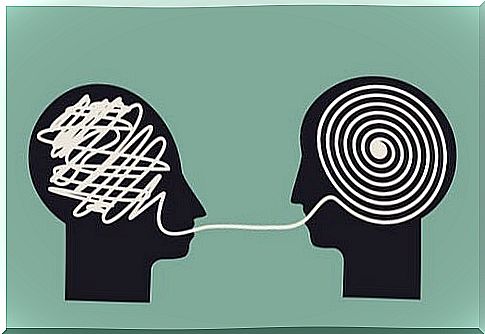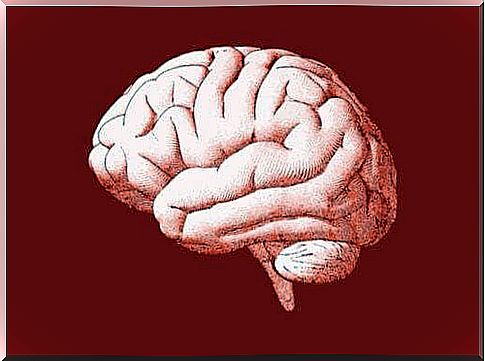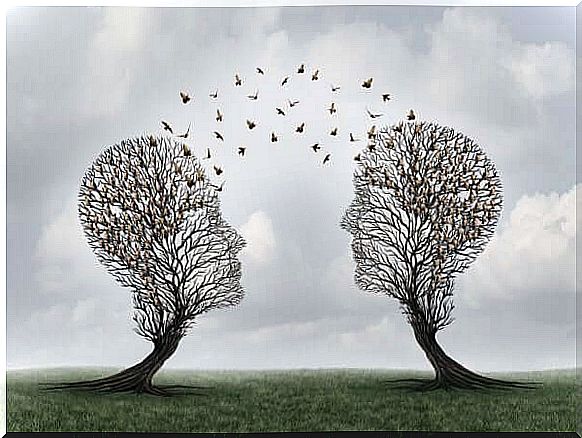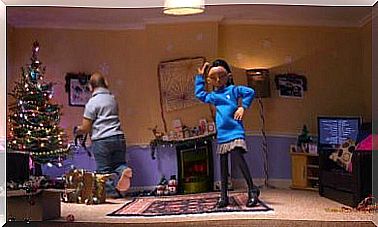Psycholinguistics: Studying Mind And Language

Often we do not stop to think about how important communication is for the human being. When it is lacking, problems arise that affect us on a cognitive, emotional and behavioral level. For this reason, it is important to study it, as does psycholinguistics among the many disciplines .
Today, at La mente è Wonderful, we want to talk to you about this science: psycholinguistics . We will dive into the depths of that branch of psychology that is dedicated to language. We will tell you what distinguishes her from other approaches, what she studies and what psycholinguistic skills are.
What is psycholinguistics?
First of all, we must specify that psycholinguistics, in reality, arises from the fusion of two areas of study: psychology and linguistics.
The first is dedicated to the study of human thinking, emotions and behavior, while the second studies the manifestations of language.
Both, therefore, come together to study the language of the human being. However, it is not simply the sum of the two sciences, but rather the use of theories and methods of both to conduct new research.
Psycholinguistics was born with Jacob Robert Kantor, who first used the term in his essay An Objective Psychology of Grammar. However, this term did not enter the common vocabulary until its use in the article
Psycholinguistics is the science that aims to study how we acquire, understand, produce and process language. In addition, it studies the disturbances or losses related to the language itself. Finally, it emphasizes the cognitive mechanisms involved in the processing of linguistic information.
Psycholinguistics focuses on the analysis of the psychological and neurological factors that influence language. It is a theoretical and experimental discipline.

How does psycholinguistics differ from other branches of psychology and linguistics?
Psycholinguistics is distinguished mainly by the way it studies language. Let’s see what its specificities are:
- Study. Study how language is used. To this end, it investigates the use of knowledge and psychological processes involved in the use of language.
- Implementation. Evaluates the set of processes by which knowledge is applied to the production and understanding of linguistic expressions.
- Implementation processes. Analyze the processes that set the linguistic instinct in motion.
There are other branches that are dedicated to the study of language, but they do it from another perspective. For example, sociolinguistics does this starting from the relationship between socio-cultural and linguistic phenomena. The same linguistics, on the other hand, which is dedicated to the origin, evolution and structure of language.
Sometimes linguistics tends to be confused with psycholingusitics. Xavier Frías Conde explains this perfectly in his article ” Introducción a la psicolingüística “. The author suggests that the two disciplines differ, among other things, with regard to:
- Understanding. The minimum acoustic unit for linguistics is the phoneme, while for psycholinguistics it is the syllable.
- Production. The subject of linguistics study is the ‘ideal native speaker’, while for psycholingusitics it is the ‘real speaker’.
- Object of study. Regarding the use of language, linguistics seeks the most elegant, formal and abstract forms of language, while psycholinguistics focuses on the principles of operativity.
Psycholinguistic research
At this point you may be wondering: how is a psycholinguistics study carried out? We proceed through interventions on two different levels:
- Observational. Based on the examination of linguistic behavior and the collection of brute data, in contextualized everyday situations.
- Experimental. Through the scientific method, in laboratory experiments.
Furthermore, psycholinguistics, like most disciplines straddling multiple branches, is very attentive to methodology. For this, experiments in this field are distinguished by an experimental footprint and accurate execution.
Like the other sciences, every time a question is answered, new ones emerge, which fuel research. In other words, a very dynamic search field.

What are psycholingusic abilities?
These are all those skills that allow us to communicate. And, therefore, they are essential when we interact. Let’s see what they are:
- The language.
- The thought.
- Writing.
- Auditory understanding.
- The sequential auditory memory.
- Visual understanding.
- Visual association.
- Verbal expression.
- Motor expression.
- Visual integration.
- Auditory integration.
- Sequential visuo-motor memory.
To evaluate these abilities, psycholinguistics uses the research paradigm of cognitive psychology, which in turn is based on mentalist, functionalist, computational and restrictive theory.
In summary, psycholinguistics is a modern science which, thanks to its passion for research, especially in the experimental field, helps to decipher the complexity of the language of human beings.
For this reason, with his discoveries, he tells us how we produce, code and use language as a communication tool.









